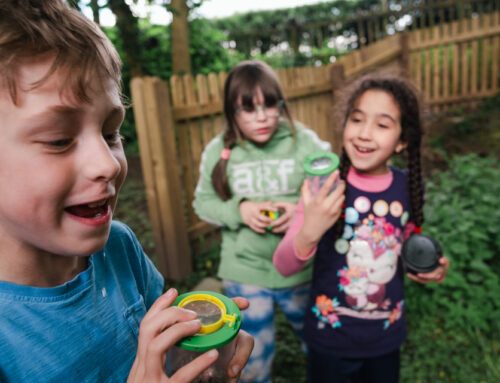It’s a tricky thing, finding a school for a high learning potential (HLP) child. As the ultimate square pegs, it is never going to be simple searching the round holes of the education system. Indeed, it is not even as simple as choosing between state or independent school: there are great and not-so-great examples in both categories.
Some parents circumvent the whole shape-sorter saga altogether and home educate (even when not forced to do so by mutant viruses and, apparently, without even resorting to a 4 o’clock gin…who knew?), thus allowing for right angles all round.
For many, though, the search for a school, however difficult, must ensue (though if you are interested in alternative education options, do take a look at our advice sheet PA312 Alternative Education Options for Children with High Learning Potential). For this cohort of caregivers, a daunting quest is laid out before them: an educational odyssey to find a school that works best for their fabulously complex cubic cutie.
By the light of which commands should one embark upon such an adventure? Well, alas, there are no absolutes, no unalterable edicts. Just like your wonderfully unique child, your quest must be your own, too. That said, a few suggestions here and there never go amiss, especially were they to assist, even just a little, in the epic pursuit…so here are just a few:
- Don’t judge a book by it’s cover
A school might have a fancy website, an impressive G+T policy, or slick PR patter, but don’t go by that alone. Some schools may not walk the walk; others might be very well set up for perfectly bright, neurotypical kids but less equipped for those further along the bell curve and with an abundance of overexcitabilities, to boot. Other schools may provide wonderful, flexible, and individualised differentiation even though none of this is explicit in policy or online content.
Similarly, whilst it is sensible to browse a school’s performance data and to take into account an Ofsted report, none of this information can tell the whole story. Nor I’m afraid, can even the most glowing reference from another parent of high learning potential (you can tell them by the dark circles under their eyes…) ever guarantee it will be the perfect setting for your own child. Despite a number of commonly shared characteristics, when you have met one child with high learning potential, you really have only met one child with high learning potential! How a setting will work for your unique child is what really matters.
2. Try to get into the school and really get a “feel” for the setting
That suggestion may be slightly laughable in our current state of lockdown part trois (not quite as good as the original, in my opinion), but let’s just say in “normal” times (not something with which I have ever been familiar, but I hear they do exist), the single most important thing you can do in your school search is to get in there; to visit all schools that are even vaguely do-able with regards to distance, finance, perhaps, or anything else at all; just go and get a feel for them all. Don’t write any off before you’ve been in. They might just surprise you. Conversely, the one with the impressive track record and wowing website might not feel right when you actually get in there.
3. When, or if, you do go in, don’t be shy
It may still be something of a taboo subject in the wider world beyond Potential Plus UK Towers, but there is no use in avoiding the high learning potential / gifted / more able / most able elephant in the room; you won’t know about their provision if you don’t bring it up. If you get an eye-roll in response, then that’s one school swiftly swept off the list, and if their reaction is positive, you will be getting the exact reassurances you require.
4. Look for understanding about the range of needs of a child with high learning potential
A child with high learning potential can be a complex being; their asynchronous development; overexcitabilities; difference to their age-peers (and awareness of this); can all mean that pastoral support and an understanding, nurturing approach can be just as important as the differentiation and academic challenge they also require. Finding a school that “gets” this need for emotional and social support as well as appropriate academic provision is definitely likely to be a keeper.
5. Check what they mean by challenge
Whilst there is no need to go all “Paxman” on them, do press a school on what challenge would look like for a child with high learning potential at their school. Be polite; be diplomatic, but by all means gently enquire, for if it turns out to be just “more of the same” (the dreaded “busy work”), then be very wary indeed. By far the best way to get to the heart of what they really can provide is to ask for specific examples of how they have challenged, or would challenge, high learning potential pupils.
As ever, too, pay attention to tone and the overall “vibe”. Flexibility and approachability are also key: a teacher who is willing to try new things, to change their best laid plans in order to get the challenge and support right for your child, and who is also happy to work in positive partnership with parents, has in many ways the best chance of getting that provision right for your child.
6. Accept the impossibility of perfection
Grasping the opportunity to model a healthy acceptance of the futility of focusing on perfection; making peace with the fact that nothing can be tied up in a neat bow, is as important as all of those open day attendances and questions fired at the faculty.
Coming to terms with the fact that it doesn’t matter how much time you spend on your search, you cannot guarantee a perfect fit from day one and then throughout their entire school career, is an important part of the quest. Teaching staff will change, values may gradually alter, and that cannot be helped. As much as no one wants to go into their school marriage with half an eye on divorce, you can only make your best choice with the information you have at the time. If things do change or it just turns out not to work in practice, a change of schools can happen at any point, and does not necessarily have to scar your child. For some children, the seemingly impetuous in-year school swap has been the best thing that ever happened to them, education and wellbeing-wise. Insurance policies tend not to cover acts of god; no school search can be held to such a standard either.
With a high potential learner’s insatiable curiosity and breakneck pace of learning, it stands to reason that there will probably not be a school that can do everything for them; no one school that will ever, truly, be “just right”. I’m afraid, weary parent, there will probably always be the need to advocate, at times, at school and add in more enrichment at home for your ever-hungry HLP-ers but, there are good schools out there that will truly try their best. There may be no Goldilocks solution, but, hey, we wouldn’t have our square pegs any other way!
For more advice about finding a school for a child with high learning potential child, including an invaluable set of question suggestions to ask potential schools, see our advice sheet PA306 Finding a School for a High Learning Potential Child.
About the author: Caroline Hooton-Picard is an adviser for Potential Plus UK. She has a background in mental health, having worked for Suffolk Mind and also in private practice, and has a first class degree in Philosophy from the University of Essex. She also has a High Learning Potential daughter who keeps her very much on her toes!






